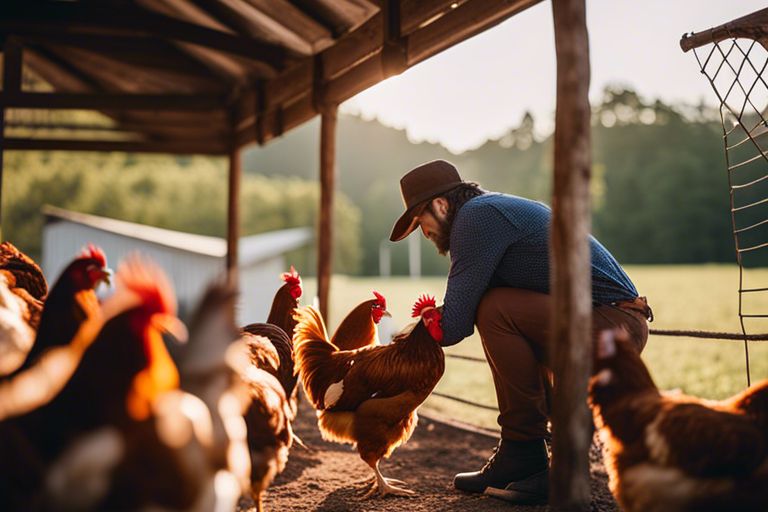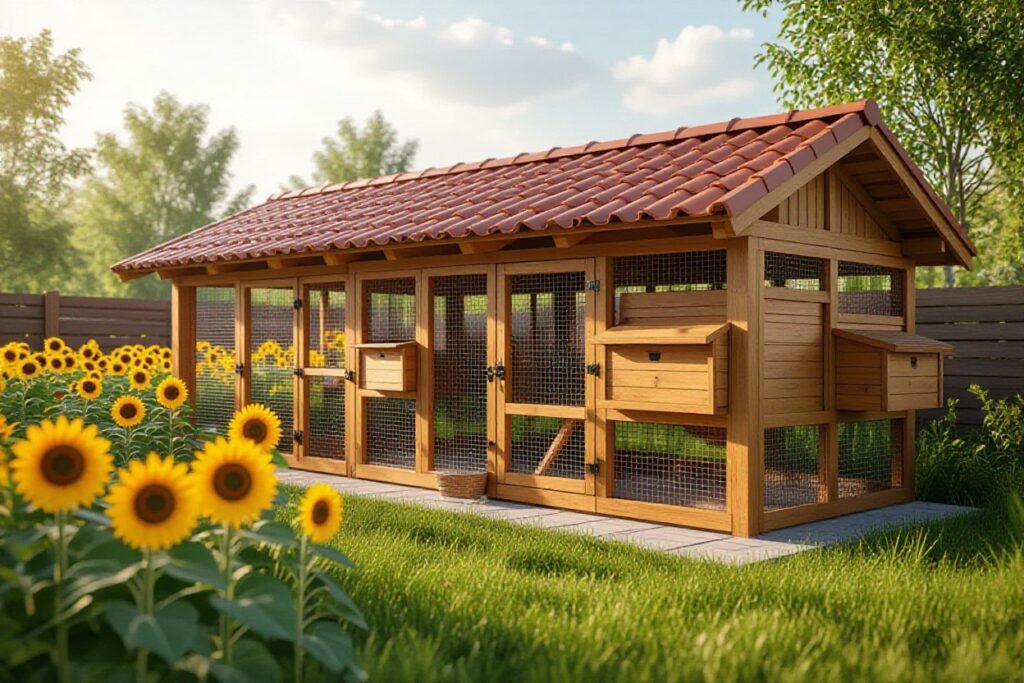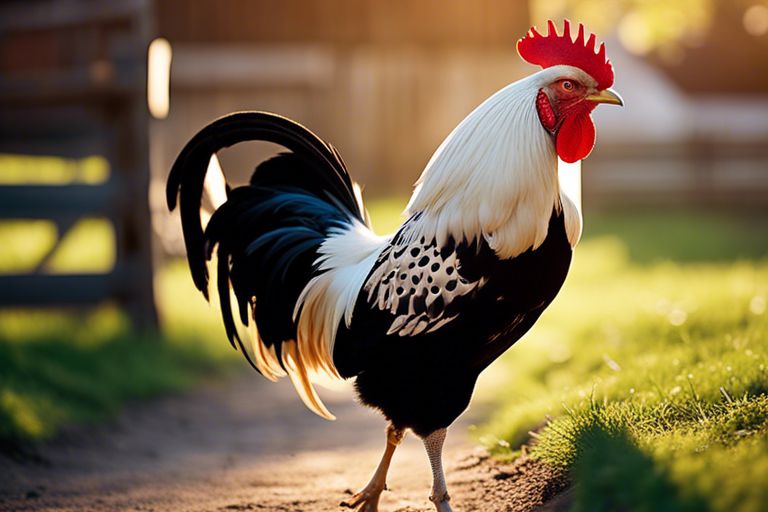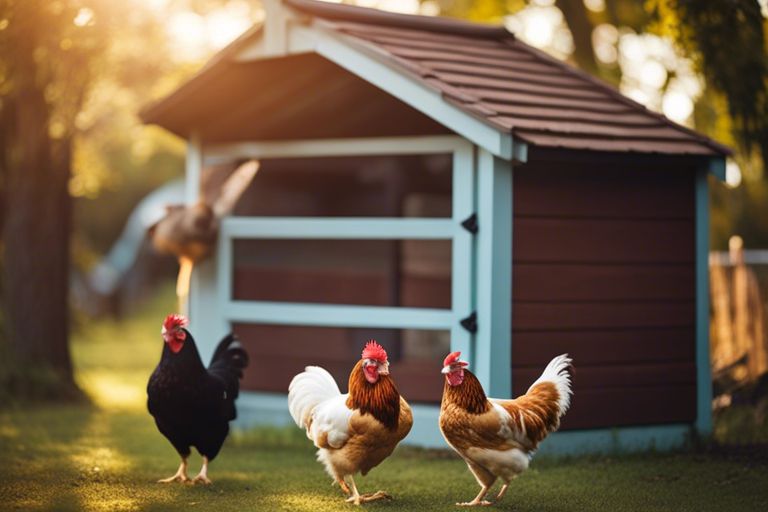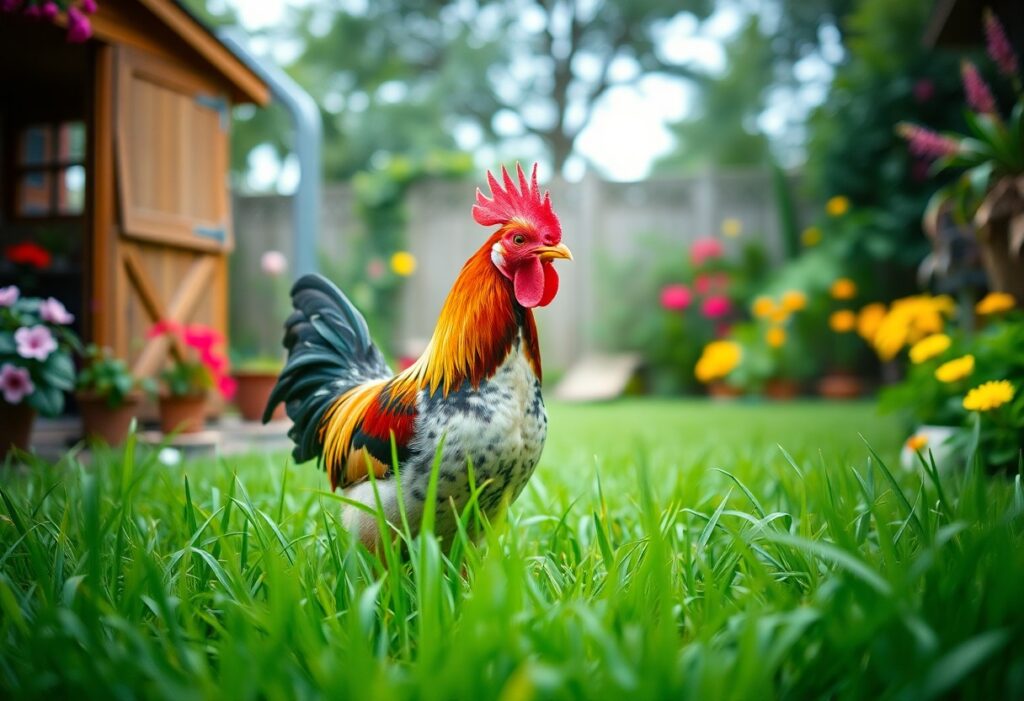Most backyard chicken keepers face the challenge of managing aggressive roosters at some point. These feisty birds can disrupt the peace in your coop and pose a danger to both humans and other flock members. In this informative blog post, we will discuss effective strategies to deal with aggressive roosters and create a harmonious environment in your poultry setup. From understanding the root causes of aggression to implementing proven techniques for behavior management, we’ve got you covered with expert advice on how to maintain a peaceful coop despite the presence of a challenging rooster.
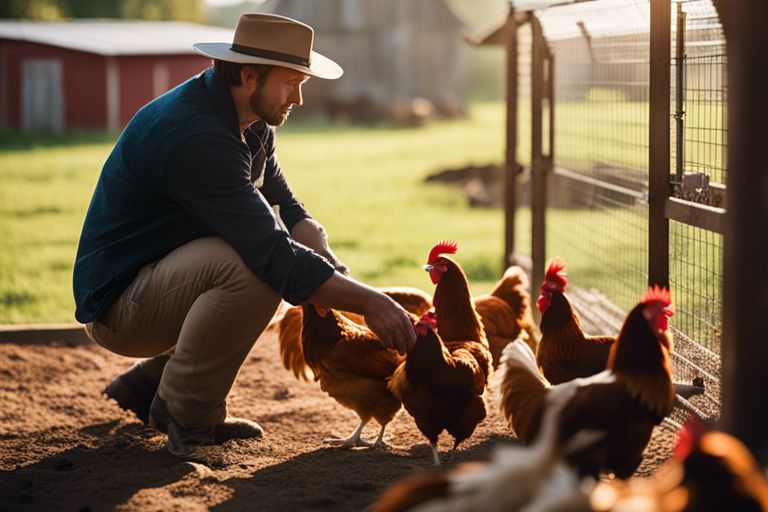
Identifying Aggression Triggers
Territorial Instincts
Instincts play a significant role in triggering rooster aggression. Roosters are naturally territorial creatures and will often become aggressive towards perceived threats to their territory. This could include other roosters, predators, or even humans entering their space. Understanding and respecting their territorial boundaries is crucial in managing their aggressiveness.
Mating Behaviors
Triggers for aggression in roosters can also stem from their mating behaviors. During mating season, roosters can become more aggressive as they compete for hens and establish dominance within the flock. This can result in aggressive displays towards both hens and other roosters. It is important to monitor their behavior during mating season and intervene if aggression becomes excessive.
Another factor that can trigger aggression in roosters during mating behaviors is the presence of a broody hen. Roosters can become protective of broody hens and may exhibit aggressive behavior towards anyone approaching them. Understanding these triggers can help in effectively managing rooster aggression and maintaining a peaceful coop environment.
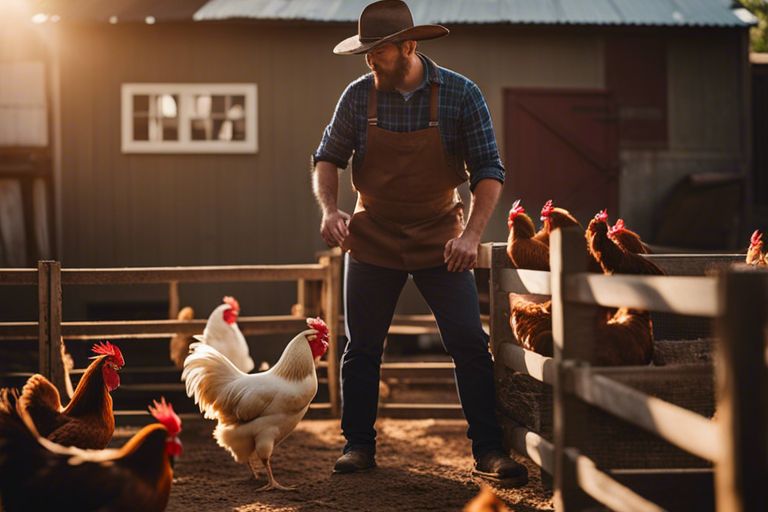
Preventative Measures
Providing Adequate Space
Some roosters can become aggressive due to feeling cramped and territorial. An important preventative measure to manage aggression in roosters is to provide adequate space in the coop and outdoor areas. Ensure that each bird has enough room to move around freely without feeling confined. This can help reduce stress and minimize chances of aggressive behavior.
Establishing a Flock Hierarchy
Some roosters may exhibit aggressive behavior in an attempt to establish dominance within the flock. An effective strategy to prevent aggression is to establish a clear flock hierarchy. This can be done by introducing new birds slowly and monitoring interactions to ensure a peaceful pecking order is established. Avoid overcrowding in the coop, as it may lead to increased aggression as birds compete for dominance.
With a clear hierarchy in place, roosters are more likely to respect each other’s boundaries and conflicts can be resolved without resorting to aggression. Keep an eye on any signs of bullying or aggression and intervene if necessary to maintain a harmonious flock dynamic.
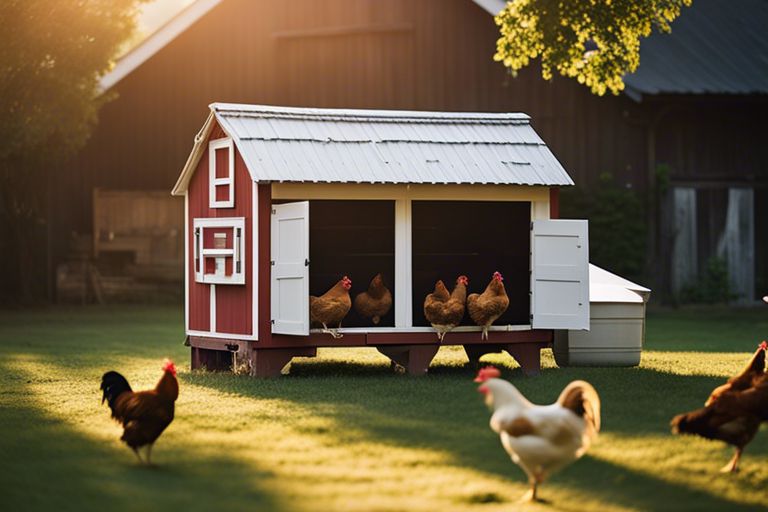
Intervention Strategies
Human Interaction Techniques
To manage aggressive roosters, it is crucial to establish yourself as the leader of the flock. Keep a confident posture and never back down from a challenge. Use a firm but gentle approach when interacting with the rooster, and always maintain consistency in your actions. By showing dominance and earning the rooster’s respect, you can effectively reduce aggressive behavior.
Rooster Training
Training your rooster is crucial for curbing its aggressive tendencies. Start by implementing positive reinforcement techniques, such as rewarding good behavior with treats. Use a consistent training schedule and set clear boundaries for acceptable behavior. With patience and persistence, you can teach your rooster to respond to commands and interact peacefully with both humans and other animals in the coop.
Rooster training involves consistent repetition of commands and rewards for desired behavior. It is crucial to start training the rooster from a young age to establish good habits early on. By using positive reinforcement techniques and remaining patient, you can effectively shape your rooster’s behavior and create a more harmonious environment in your coop.
Environmental Modifications
Enhancing the Coop Layout
Layout plays a crucial role in managing the behavior of aggressive roosters. By providing ample space for each bird, you can reduce territorial disputes and aggression. Ensure that the coop is well-structured with separate areas for feeding, roosting, and dust bathing to minimize competition and stress among the birds.
Implementing Enrichment Activities
Animals, including roosters, thrive when they have opportunities for mental and physical stimulation. Implementing enrichment activities such as hanging treats, providing puzzle feeders, or introducing novel objects in the coop can help redirect aggressive behavior and keep the roosters engaged and content.
It is imperative to rotate and vary enrichment activities regularly to prevent boredom and maintain the effectiveness of these strategies. Additionally, observe the roosters’ reactions to different activities to tailor enrichment to their preferences and encourage positive behaviors.
Summing up
Managing aggressive roosters is crucial for maintaining a peaceful and harmonious coop environment. By understanding the root causes of their aggression and implementing strategies such as proper handling, providing enough space, and establishing a pecking order, you can prevent conflicts and ensure the well-being of your flock. Recall, consistency and patience are key when dealing with aggressive roosters, and always prioritize the safety of both your birds and yourself. With the right approach and proper management, you can create a peaceful coop where your roosters can coexist harmoniously. Stay vigilant, stay informed, and enjoy your time with your feathered friends.
FAQ
Q: Why do roosters become aggressive?
A: Roosters can become aggressive due to their natural instinct to protect their flock, establish dominance, or when they feel threatened.
Q: How can aggressive roosters be managed?
A: Aggressive roosters can be managed through proper socialization, handling, and training techniques to establish boundaries and respect.
Q: What are some strategies for dealing with aggressive roosters in a flock?
A: Strategies for dealing with aggressive roosters include separating them from the flock, providing them with their own space, and using deterrents like water spray bottles.
Q: Can aggression in roosters be prevented?
A: While aggression in roosters cannot always be prevented, early socialization, positive reinforcement, and consistent training can help minimize aggressive behaviors.
Q: How important is it to establish dominance over aggressive roosters?
A: Establishing dominance over aggressive roosters is crucial to maintaining a peaceful flock hierarchy and ensuring the safety of other chickens in the coop.
Q: Are there specific breeds of roosters known to be more aggressive?
A: Yes, some breeds, such as Old English Game and Malay, are known to be more aggressive than others. However, individual temperament can vary within breeds.
Q: What should be done if an aggressive rooster poses a danger to the flock or the owner?
A: If an aggressive rooster poses a danger to the flock or the owner, it may be necessary to rehome the rooster or consider other options such as culling to ensure the safety of the overall flock.
